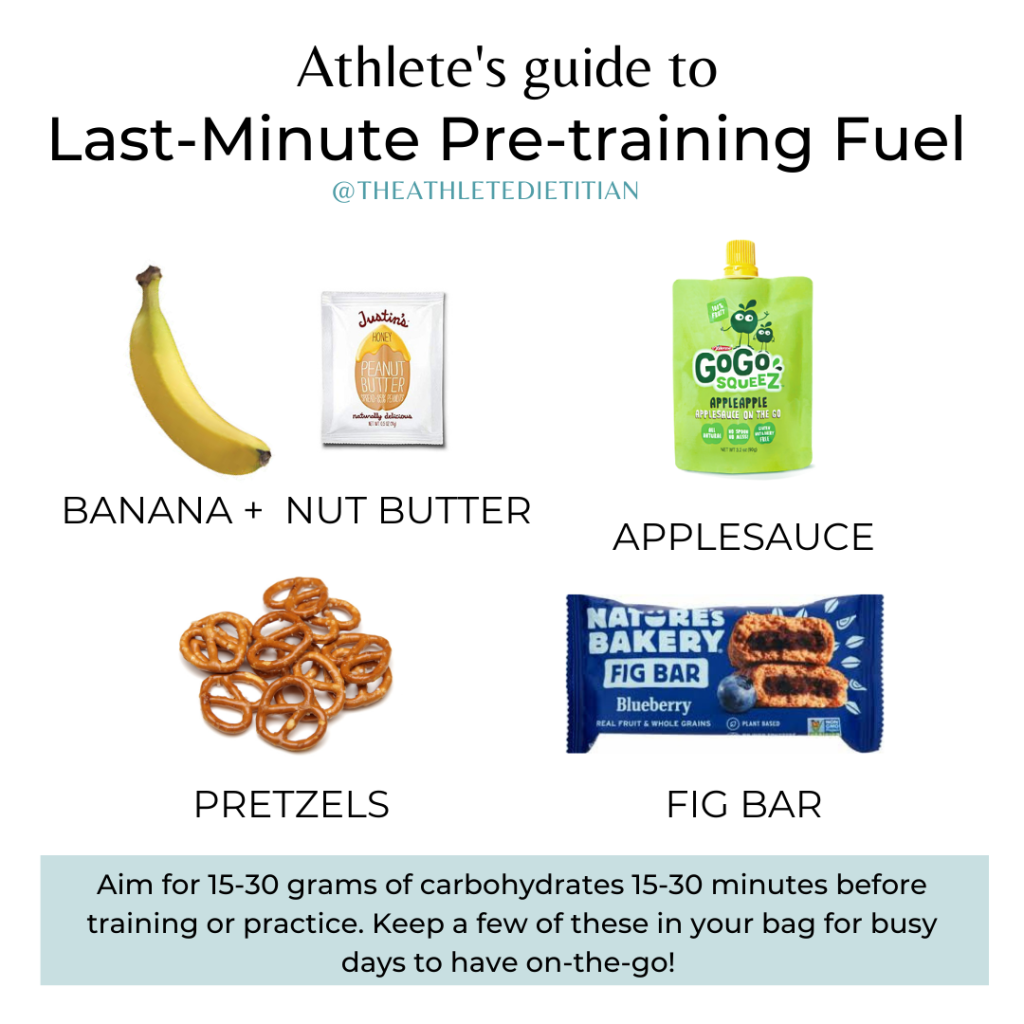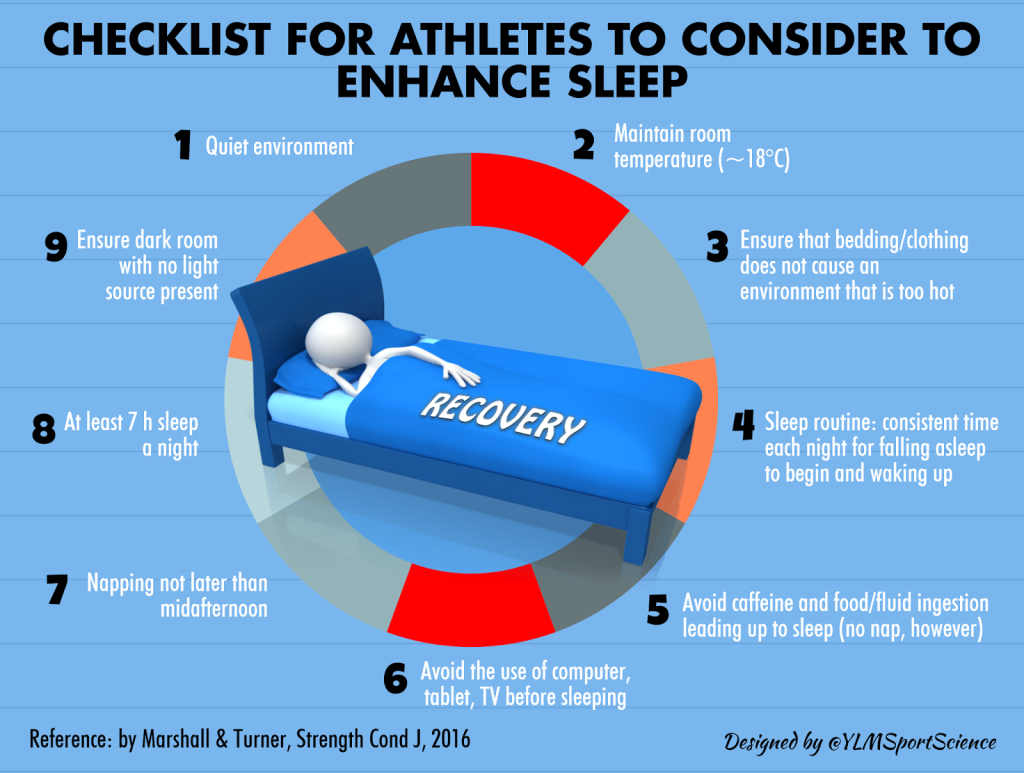Balancing training, academics, and a social life as a female college athlete can be challenging. With the stress to balance these aspects, it is easy to overlook two essential components to performance and recovery: proper sleep and nutrition. These components are critical to an athlete’s physical and mental health, and both can significantly impact your ability to perform at your best, recover, and maintain your overall well-being.
The Importance of Nutrition for Athletic Performance
Fueling your body properly as a female athlete is crucial. Proper fuel aids in recovery and maximizes athletic performance. It is important to understand that as a female athlete your nutritional needs may differ from male athletes due to hormonal differences and the unique demands of female physiology.
Fueling Your Body for Energy
During intense training sessions and competitions, our body uses carbohydrates, our body’s energy source. Carbohydrates are the gas in the tank and the primary source of energy during these activities. Consuming the right amount is crucial. Foods like potatoes, rice, oatmeal, fruits, and vegetables are sources of carbohydrates that provide lasting energy throughout the day. As a female athlete, aim to consume easily digestible carbohydrates 1-2 hours before a workout. Digestible carbs are broken down and turned into glucose or sugar in the body to be used as energy during workouts. 30 minutes before a workout, eat a small snack that can provide a quick energy boost.

Protein is another key component of an athlete’s diet. It plays a critical role in muscle repair, growth, and recovery. Female athletes need adequate protein to rebuild muscle fibers that are broken down during exercise. For a female athlete try and eat between .6 and 1.0 gram of protein per pound of body weight per day. Lean meats, fish, eggs, dairy, and plant-based proteins like beans can help meet protein requirements.
Supplements for Females
Bone related injuries like stress fractures are more common in female athletes, especially for athletes that participate in sports with high-impact like running and jumping. Calcium and vitamin D intake is essential for maintaining strong bones. Foods like dairy products, leafy greens, and salmon are excellent sources of these nutrients.
Iron deficiency is a common concern for many female athletes. This is commonly due to menstruation, which can lead to fatigue, decreased performance, and decreased recovery. Iron-rich foods including red meat, poultry, beans, spinach, and certain cereals can help increase iron intake. Foods like oranges and bell peppers are high in vitamin C which can help with iron absorption.
Hydration
Hydration is just as important as nutrition. Dehydration can negatively impact performance, leading to fatigue, cramping, and a decrease in focus. As a female college athlete, it’s essential to drink water throughout the day, not just during practices and games. Aim to drink sixty four to one hundred and twenty-eight ounces of water per day. However, it is important to remember that your hydrations needs will increase as your physical activity increases. It is important to know that your period can cause water retention and change your thirst perception, making it more important to increase water during menstruation to ensure you do not become dehydrated. Additionally, electrolyte-rich drinks can help replenish lost minerals after intense workouts.
The Role of Sleep in Recovery and Performance for Female Athletes
As a student athlete sleep is often sacrificed do to not only athletic trainings pressures, but social obligations and academics. Sleep is not only important to feel rested, it is vital for recovery, muscle repair, mental clarity, athletic performance and overall well-being. During sleep, your body enters a state of repair and regeneration. While sleeping a growth hormone is released, and muscle fibers that were broken down during exercise are repaired and rebuilt stronger. Without sufficient sleep, your body cannot recover properly, which can lead to fatigue, overtraining, and even injury. For college athletes, sleep can be the difference between feeling sluggish and achieving peak performance.

Cognitive Function and Focus
Sleep is essential for cognitive function, including memory, decision-making, and focus. As a student-athlete, it is important to feel mentally sharp in the classroom and on the playing field. Inadequate sleep can negatively impact reaction times, concentration, and you are at a higher risk of making a mistake. Prioritizing sleep can enhance your ability to focus in the classroom and execute your skills during competitions. For college athletes, 7-9 hours of quality sleep per night is recommended. However, an individuals needs may vary day to day, especially in times of high training and competitions. It’s also important to prioritize quality sleep, which means creating a positive sleep environment—dark, cool, and quiet—while limiting distractions like screens before bedtime. Many find it helpful to stick to a night time routine to ensure that your body is wind down and ready for a productive night’s rest.
Balancing Nutrition, Sleep, and Athletic Demands
It’s easy to feel overwhelmed when trying to balance the demands of a college athlete’s lifestyle. However, it’s essential to recognize that nutrition and sleep are not just “add-ons” to your training routine, they are an important part of it. By prioritizing proper nutrition and getting enough sleep, you’re not only giving your body the fuel and recovery it needs, but you’re also supporting your long-term athletic goals.
It is also important to be mentally strong as a female athlete that has to balance the challenges of every day life on top of school work and athletic demands. Read the article linked below for more information on the power of a mental coach for athletes.
The Bigger Picture
As a female college athlete, it’s easy to get caught up in the cycle of training, classes, and social activities. However, never underestimate what good sleep and nutrition can do for you. These two pillars of health can help you maximize your athletic potential, prevent injuries, and keep you mentally sharp. Try creating a schedule that allows you to fuel your body with the right food and giving your body the rest it needs. This allows you to enhance your performance today and set yourself up for success in the future. So, prioritize your nutrition and sleep as much as your workouts.
Leave a Reply